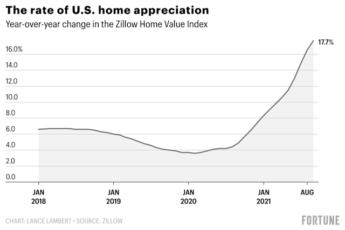Why do real estate agents say now is not a good time to buy? What are the factors to consider when making an offer? This article outlines the reasons why spring is the best time to buy. We will also discuss tips to avoid rushing to make an offer in a hot market. Finally, we’ll cover tips for negotiating with a real estate agent.
- Why spring is the most popular time of year to buy
- Why real estate agents say now isnt a good time to buy
- Tips to avoid waiting too long to make an offer in a hot market
- Tips to negotiate with a real estate agent
- Lessons learned from investing in owner-occupied homes
- Leverage in real estate
- iBuyers as an alternative to traditional owner-occupied homes
- iBuyers as a good way to get into real estate investing
Why spring is the most popular time of year to buy
During spring, homebuyers have more choices than ever. Home sellers are preparing their homes for the rush of buyers, so more homes are available for viewing. With warmer weather, more buyers are compelled to make offers on these properties. And, with spring gardens in bloom, your home will look even better in a brochure or flyer. And, with less stress, relocating your family can be a great way to settle in before school starts.
Although spring is the most popular time of the year to buy real estate, there are many other times of the year that are equally advantageous for buyers. While it’s important to remember that you can buy property all year round, many of the best deals are available at this time of year. Spring is also the best time to sell your home if you’re a seller. However, keep in mind that the market may be more crowded and prices may be lower during the spring.
As the housing market warms, mortgage interest rates are also at historic lows. Thanks to low rates, the Federal Reserve has lowered mortgage rates twice since COVID-19 to protect the economy. In fact, the 30-year fixed mortgage rate stands at 3.5% today, and the 15-year fixed mortgage rate is 2.77%. Because of this, many smart buyers are taking advantage of these low mortgage rates. As a result, this is the best time to buy real estate and refinance your existing mortgage.
The spring season is a great time for homebuyers to find a home. Buyers have been sitting indoors during the winter months, which means that many homes are not listed. Meanwhile, sellers have been paying utilities for unused rooms. Because of this pent-up demand, homebuyers may be more motivated to look at homes. The winter months can also be a bad time to sell a house.
Why real estate agents say now isnt a good time to buy
There are many reasons to sell your house, from personal reasons like relocating near family or work to personal reasons like getting pregnant and needing more bedrooms. A high demand for real estate also means more competition and influx of cash buyers, pushing home prices up. A seller’s strategy can make all the difference. It may even be possible to buy your next home for cash. Just be aware that some houses will need a little TLC.
In a recent study, 98% of U.S. real estate agents predicted a seller’s market in Q1 2022. The low supply means that homes will continue to sell quickly. This is especially true in urban areas where inventory is lower. However, while home prices have dipped, the economy is still healthy, which makes spring a good time to purchase a home.
Tips to avoid waiting too long to make an offer in a hot market
A hot housing market is not the time to be indecisive. Make sure you do enough research, have your financing in order, and know what you must have in a house. Then, when the right home comes along, you can jump on it. You will likely have multiple offers, so be sure you have your offer in writing. Also, have a rental lined up so you don’t have to live in the property until you can buy it.
During a hot market, buyers are more likely to make an offer on a home if there are few available homes on the market. This gives buyers more leverage to negotiate with sellers, but be careful not to get too excited. This may lead you to settle for less than you really want. In these instances, it is crucial to remain calm and follow 10 tips to avoid waiting too long to make an offer in a hot market.
First, make sure to get pre-approved for mortgage before you make an offer. This will minimize the risk of financing falling through. Second, make sure to be patient and not stalk the seller. Instead, let your agent make your case to the seller. If the seller is hesitant to accept your offer, he or she will want to negotiate a lower price. When you can negotiate, make your offer as compelling as possible.
Tips to negotiate with a real estate agent
One of the best tips to negotiate with a real estate agent is to be prepared. Make sure to study the market before you meet with a real estate agent. Asking why someone is selling their house may give you insight into the person’s personality and needs. Once you have a basic idea of what you are willing to spend, you can use it as a starting point for the negotiation. In some cases, a personal letter from the seller can help sway the deal.
First, always avoid the word «yes.» This is because real estate agents use a theory of yes momentum to try and get their clients to agree to a big ask. It makes people defensive and withdrawn. Stopping yes chasing is easy; you just need to learn to ask questions that make you say no. Then, make sure you end your negotiation on a good note. Once you’ve negotiated and reached a deal, shake hands and thank each other for the negotiations.
Another great tip is to try to negotiate your agent’s rate. Although both parties want the deal to close, both sides need to get something out of the deal. In general, agents don’t want to lose money, but they are nervous about extending their discounted rates to others. Instead, use this as an opportunity to negotiate and look for a middle ground. However, remember to be polite and respectful to both sides. When you meet with your real estate agent, avoid texting and instead try to meet face-to-face or over the phone.
If you don’t want to get dragged down during the negotiation, be direct. It’s very frustrating to be continually rejected. But being direct and straightforward will help speed up the entire process and ensure a smooth closing. Remember: you’re trying to make a deal with the other side, and your agent wants to make a good one for you! Just remember, the buyer’s agent will be more than happy to answer all of your questions.
Some investors don’t own their own homes. They figure out how much cash they can invest without owning a house, and then make their investment. Others do not own a home at all, but they invest in properties in which they have some interest. Whichever strategy works best for you depends on your specific situation. Read on to learn more about the advantages and disadvantages of iBuyers and other alternative investments.
Lessons learned from investing in owner-occupied homes
If you have invested in owner-occupied homes before, you may have been tempted to buy a distressed property for a quick profit. In reality, many of these distressed homes require extensive repairs. A faulty plumbing system or broken appliances may result in hefty maintenance costs, making it difficult to make a profit. In such situations, you may have to call in a plumber or fix the toilet to keep the rental value high. Fortunately, there are a few lessons you can learn from this experience.
Leverage in real estate
Leverage in real estate investing is a financial tool that allows investors to borrow money to purchase a property. While this is an important concept, there are also several other ways leverage can help you in real estate investing. Here are some examples. 1. Leverage in buying rental properties
First, you should understand how much leverage is appropriate. The optimal amount of leverage depends on the financing conditions, and a conservative level can give an 11.6% cash-on-cash return. However, the observed level of leverage is not as large as the optimal level. This may be due to the uncertainty surrounding the optimum leverage level. Leverage can also be detrimental if real estate prices are volatile. Some borrowers end up with properties worth less than they borrowed. In these cases, you can reduce your risk by limiting the amount of leverage you use.
The second advantage of using leverage is its ability to maximize your returns. While real estate investing involves some risks, if you know how to structure the transaction, you can increase your returns. Leverage in real estate investing is also called cash-on-cash return policy, which means that you will earn more money after expenses than you invested. In real estate investing, leverage is an important strategy that requires patience and planning. In general, you should not take out a loan without having a plan.
When using leverage in real estate investing, it’s important to remember that the most efficient time to use leverage is when property values and rents are rising. That’s the case in most areas of the country today, but falling property values and rents can quickly erase your leverage advantage. In short, leverage in real estate investing can help you purchase properties while building wealth using other people’s money. When used correctly, leverage is a great tool to have in your arsenal.
When considering leverage, you can get a loan from a traditional bank or credit union. You may be eligible for a better interest rate if you are a member. If you have bad credit, don’t take a loan until you’ve paid off your other debts. Instead, you should evaluate your financial situation to determine if you need more or less debt for your investment real estate portfolio. Do not exceed your home equity line unless you can afford it.
iBuyers as an alternative to traditional owner-occupied homes
There is some debate over iBuyers as an alternative to owner-occupied homes for real estate investors. Many say they artificially inflate house prices and funnel owner-occupied homes to investors. But the question is whether or not the iBuyers actually do that. In September, a TikTok video showed a real estate agent implying that the iBuyers were manipulating house prices and funneling them to investors. In the video, the real estate agent hypothesized that iBuyers were manipulating house prices with a two-stage process.
The two most popular iBuyers are Zillow and RedfinNow. Both of these companies use proprietary algorithms to determine the value of a home, then purchase the property directly from the owner. While the prices of these properties are typically 0.22 percent less than the fair market value, these companies charge slightly higher fees than conventional listing agents. The advantage of using an iBuyer is that you’ll be able to close the deal much quicker than with a traditional listing agent. You won’t have to worry about lengthy escrow periods, open houses, or multiple showings. If you find the right one for your investment, you can turn it into an instant profit.
There are other pros and cons to using an iBuyer as an alternative to traditional owner-occupied homes. Although they are less unpredictable than traditional home buyers, iBuyers are not available in all areas and may not be qualified to buy your home. The iBuyer’s inspection may reveal that your home needs repair work. The iBuyer will deduct those costs from the proceeds.
Although iBuyers are a great alternative to traditional owner-occupied homes for real-estate investors, they are still a small part of the real estate market in most areas of the country. In the third quarter of 2021, the number of iBuyers purchased was 28,000, accounting for just 1.6% of all homes in the U.S. in that period, according to a Zavvie report.
iBuyers as a good way to get into real estate investing
If you’re looking for an easy way to enter the real estate investing business, you might consider iBuyers as a great way to begin. These companies use technology to make offers on homes and often assume the holding costs of finding a buyer. They use this technology to streamline the selling process, allowing you to make a profit quickly and easily. But before you consider iBuyers as a good way to get into real estate investing, be sure to check out the pros and cons of both.
One big disadvantage of iBuyers is that they use an algorithm to value homes, so they do not prioritize properties that need some work. Also, they’re more likely to buy tract housing, which means iBuyer won’t prioritize older homes that have character, which could yield massive profits. However, individual investors with a trusted contractor can invest in these older homes, making them a better choice for beginners.
While most real estate investors would like to be able to devote enough time to finding the perfect property, the fact is that this process can be time-consuming. Many investors work with brokers or realtors, and other investors use time-consuming strategies. If you’re not willing to invest your time in this process, you can also use iBuyers as a good way to get into real estate investing.
In addition to iBuyers, other real estate investors should check out the company Opendoor. This company has been growing fast, serving more than 50,000 customers in less than five years. Using this service could be the best way to break into the real estate investing business. However, be careful because they are a great way to make money while learning the ropes. If you’re unsure about real estate, this might not be the best way to get started.
While iBuyers are a legitimate real estate company, they can’t buy every home. However, they do offer a service for sellers, which guarantees that their home will be sold in less than two weeks. Besides offering certainty, iBuyers can also offer convenience. However, their convenience comes at the cost of a reduced sale price. iBuyers are best for people who are in a hurry to sell their home, or who want a quick sale. They’re not the best choice for people who want a hassle-free sale and want to get the most money. They’re also a great option for those who have time to research and prepare a property for sale.







